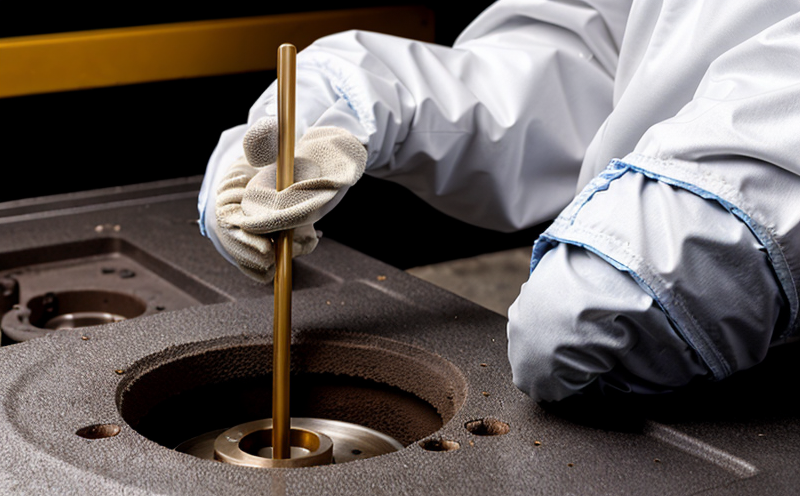Testing coating hardness under low-temperature conditions
Unlocking the Secrets of Coating Hardness Why Testing under Low-Temperature Conditions is Crucial for Your Business
In todays competitive market, coatings play a vital role in protecting and enhancing various surfaces. From architectural facades to industrial machinery, coatings provide a barrier against harsh environmental conditions, wear and tear, and corrosion. However, the performance of these coatings can be significantly affected by temperature fluctuations. Testing coating hardness under low-temperature conditions is a critical laboratory service that ensures your products withstand even the most extreme temperatures.
At Eurolab, we understand the importance of thorough testing to guarantee the reliability and durability of coatings in various applications. In this article, we will delve into the significance of testing coating hardness under low-temperature conditions, its numerous benefits, and the importance of choosing a reliable laboratory partner like Eurolab.
What is Testing Coating Hardness under Low-Temperature Conditions?
Testing coating hardness under low-temperature conditions involves evaluating the mechanical properties of coatings at temperatures below ambient levels. This process assesses how well the coating adheres to its substrate, resists deformation, and maintains its integrity in cold environments. By simulating real-world conditions, such as those encountered during winter months or in cryogenic applications, this testing method helps manufacturers identify potential issues and optimize their products for improved performance.
Why is Testing Coating Hardness under Low-Temperature Conditions Essential?
Incorporating low-temperature coating hardness testing into your product development cycle offers numerous advantages. Some of the key benefits include
Improved Reliability By understanding how coatings perform in cold temperatures, manufacturers can ensure their products operate reliably even in extreme conditions.
Enhanced Durability Testing under low-temperature conditions helps identify potential weaknesses in coatings, enabling manufacturers to make data-driven decisions about material selection and formulation.
Increased Efficiency Identifying and addressing issues early on reduces the risk of costly product recalls, warranty claims, and reputational damage.
Compliance with Regulations Conducting thorough testing ensures that products meet or exceed industry standards, reducing the likelihood of regulatory non-compliance.
Key Benefits of Testing Coating Hardness under Low-Temperature Conditions
Here are some key benefits of incorporating this laboratory service into your product development cycle
Reduced Risk of Material Failure
Testing coating hardness under low-temperature conditions helps manufacturers identify potential material weaknesses, allowing for proactive mitigation and reduced risk of failure.
Improved Adhesion and Bonding
This testing method assesses the bonding between coatings and substrates, ensuring optimal adhesion and preventing delamination or cracking in cold environments.
Enhanced Corrosion Resistance
By evaluating coating hardness under low-temperature conditions, manufacturers can identify potential corrosion hotspots and optimize their products for improved resistance to degradation.
Data-Driven Decision Making
Thorough testing provides valuable insights that inform material selection, formulation, and application decisions, enabling manufacturers to make informed choices and drive product innovation.
QA Your Questions Answered
At Eurolab, we understand that you may have questions about our laboratory services. Here are some frequently asked questions and answers
Q What types of coatings can be tested under low-temperature conditions?
A We test a wide range of coating types, including but not limited to primers, topcoats, powder coatings, and epoxy-based systems.
Q How do you ensure accurate results?
A Our state-of-the-art equipment and experienced technicians guarantee precise measurements and reliable data. All testing is performed in accordance with industry-recognized standards and regulations.
Q Can I request customized testing programs or protocols?
A Yes, we offer tailored testing solutions to meet your specific needs. Our experts will work closely with you to design a program that addresses your unique requirements.
Why Choose Eurolab for Testing Coating Hardness under Low-Temperature Conditions?
At Eurolab, we pride ourselves on delivering accurate, reliable, and timely results. With our cutting-edge equipment, experienced technicians, and commitment to quality, we ensure that your coatings meet or exceed industry standards. By partnering with us, you can
Trust the Experts Our team has extensive knowledge of coating materials, applications, and testing methods.
Ensure Compliance We help you navigate complex regulations and industry standards.
Accelerate Innovation Our thorough testing services inform data-driven decisions that drive product innovation.
In conclusion, testing coating hardness under low-temperature conditions is a critical laboratory service that ensures the reliability and durability of coatings in various applications. By partnering with Eurolab, manufacturers can unlock the secrets of coating performance and create products that withstand even the most extreme temperatures. Dont let temperature fluctuations compromise your products integrity choose the experts at Eurolab for accurate, reliable testing results.




